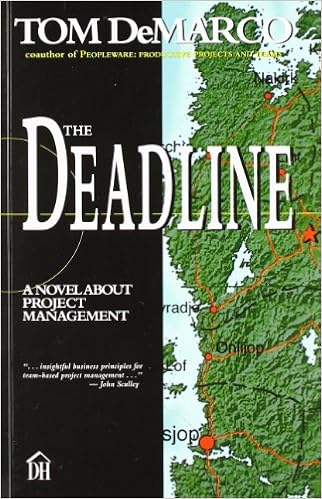--Originally published at Meeting the Deadline

Welcome everybody, ladies and gents, to this great and profound adventure that is Project Evaluation and Management.
Today it’s indeed a great day, because today is the day we start to unravel the lessons learned from the journey of Mr. Webster Tompkins, a systems manager that, in words of Lahksa Hoolihan, is “a good one”.
Webster and Lahksa are essential part of The Deadline: a novel about project management, a book in which this post (and most of the following posts) is based. The book gives us a head start about what to expect in project management matters while covering the story of how a country in the third world carefully crafted a plan to create a world-class software factory and become the first in the world in export of shrink-wrapped software by the year 2000, which of course had its up’s and down’s.
We will be covering all the chapters in the book in posts containing from 1 to up to 3 or 4 chapters, leaving only the key concepts expanded and some key situations of the narrative. Also, from time to time, we’ll be covering extra topics outside of the book related to project management and business economics. More on that on future posts.
So, make sure you have with you paper and pen, notes and pencils, tablets and laptops, because you might want to take notes of some of this. Certainly, it is an insight of TOP SECRET information from one of the most profitable (I do hope so) venues of the Morovian Government.

Let’s begin by describing how the life of a very talented systems manager (but unappreciated in his work environment) took a drastic turn, because Continue reading "“You’re a manager. A systems manager, and a good one” – Chapters 1 & 2"




























